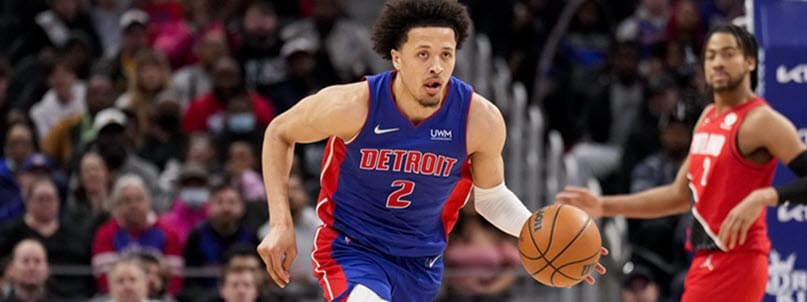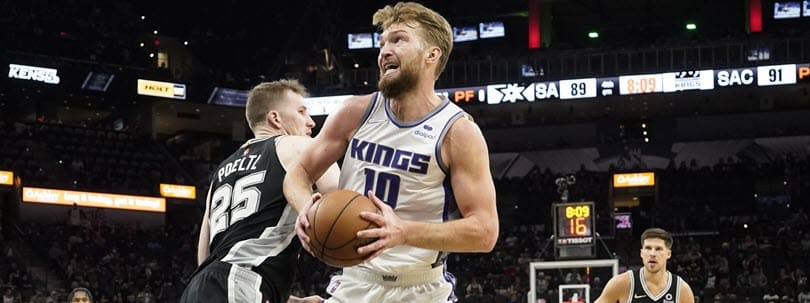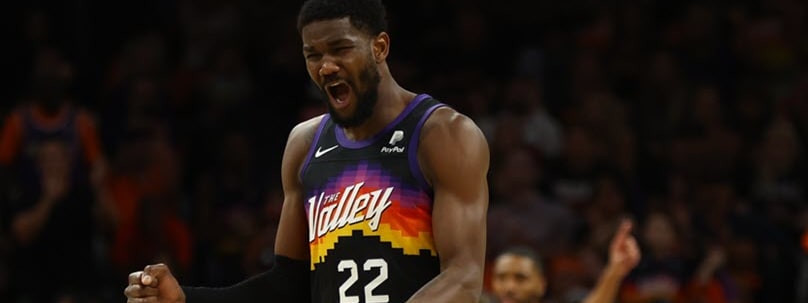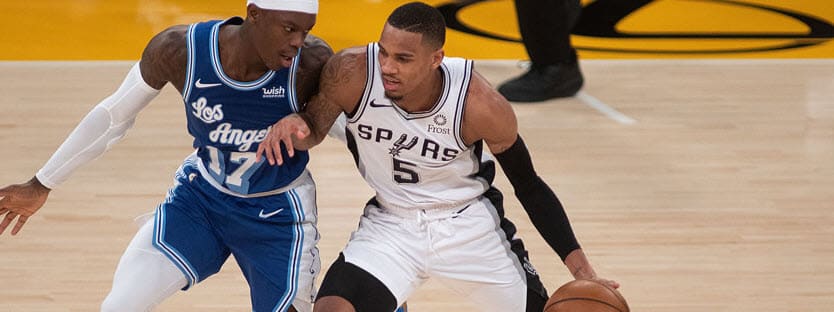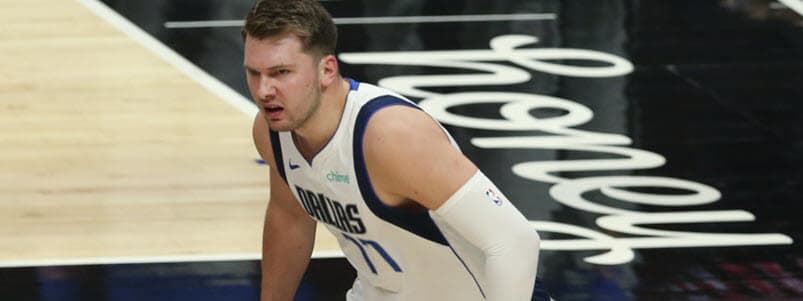Recent RotoWire Articles Featuring Avery Bradley
See More
Bradley turned down his $5 million player option with the Lakers, finding more money on the team that the Lakers battled against in the NBA Finals (Miami). Though he's getting more money, it seems like he might see a reduced role. The Heat have no shortage of capable guards and wings, including Goran Dragic, Kendrick Nunn, Jimmy Butler, Tyler Herro, Duncan Robinson and Andre Iguodala. Bradley wasn't fantasy-relevant when he averaged 24.2 minutes last season, and it seems like more of the same is on tap for 2020-21.
Bradley was held to a single-digit scoring average last season for the first time since 2012-13, and he posted his worst field goal percentage (40.8) since the same year. Bradley wasn't a reliable contributor with the Clippers despite starting all 49 of his appearances and, ultimately, he was moved to Memphis. However, he did finish the campaign on a high note, pouring in averages of 16.1 points (46.3 FG%, 38.4 3P%, 92.0 FT%), 4.0 assists, 3.1 rebounds, 2.0 threes and 1.0 steal in 31.6 minutes across 14 games with the Grizzlies. Bradley will now compete with the likes of Danny Green, Kentavious Caldwell-Pope, Quinn Cook, Rajon Rondo, Alex Caruso and Troy Daniels for playing time in a crowded Lakers backcourt, though at least a couple of those players could end up spending some time at small forward. Nevertheless, given the team's depth, Bradley may struggle to fill up box scores on a consistent basis.
Bradley opened the 2017-18 campaign with the Pistons, where he played in 40 total games and averaged 15.0 points, 2.4 rebounds, 2.1 assists, 1.2 steals and 1.9 three-pointers across 31.7 minutes. However, he was then dealt to the Clippers at the end of January in the blockbuster Blake Griffin trade and went on to play in just six games with his new team before being held out of the final 26 contests following sports hernia surgery. It marked a second straight year where he played in 55 games or less, so questions about his durability are certainly warranted at this point in time. However, that injury history didn't discourage the Clippers for re-signing Bradley this offseason, bringing him back on a two-year, $25 million deal. If the Clippers continue to bring Lou Williams off the bench, the expectation is that Bradley should start at shooting guard. The Clippers did bring in rookie Jerome Robinson in the first round of the draft and he should see time at shooting guard behind both Bradley and Williams, though that shouldn't get in the way of Bradley potentially pushing for minutes in the 30's on a night-to-night basis. Fantasy owners may want to temper expectations a bit early on as he works his way back into the swing of things, but eventually Bradley could provide the all-around production that would make him a viable roster addition in the bulk of Fantasy formats. He'll likely be a player to target in the back end of drafts as there's a good chance he's able to put together a bounce-back season if he remains healthy.
Bradley has spent his entire seven-year career with the Celtics after being selected with the 19th overall pick in the 2010 NBA Draft. During those seven years, he's played more than 70 games just twice, as injuries have been a constant. That was no different during the 2016-17 campaign, with Bradley sitting out 27 games, most of which were due to a right Achilles injury. That said, those contests that he did take part in, he showed plenty of improvement across the board despite being part of a very talented roster. Bradley posted career highs of 16.3 points, 6.1 rebounds and 2.2 assists, which was up from his averages of 15.2, 2.9 and 2.1, respectively, during the 2015-16 season. He also continued to be one of the better defenders in the league, averaging 1.2 steals, although he was arguably snubbed from the NBA All-Defensive First and Second teams. Bradley's defensive prowess should continue, but he's also added a more consistent three-point stroke. He averaged a career-high 2.0 three-pointers per game and finished with a 39 percent success rate from beyond the arc. However, the 2017-18 season will come with some big changes. Bradley was dealt to the Pistons in the offseason in order to make room for Gordon Hayward on the Celtics. That should come with some benefits for Bradley, who's joining a less talented roster and has a point guard in Reggie Jackson that is more inclined to get his teammates involved rather than take on the bulk of the scoring load, which was occasionally the case with Isaiah Thomas in Boston. That should allow Bradley to be an even bigger factor offensively, meaning a slight spike in his points per game seems possible. Andre Drummond's work on the boards is likely going to result in a few less boards for Bradley, but his defense is unlikely to fall off and if he continues to improve his deep ball, he's going to be fantastic two-way threat for the Pistons. There's surely going to be some growing pains as he gets accustomed to his new team and there's always the injury risk for Bradley, but his value appears to be on the rise overall.
Bradley averaged a career-best 15.2 points per game last season while earning First-Team All-Defense honors for the first time. The 25-year-old shot 44.7 percent from the floor -- his best mark since 2011-12 -- and converted 36.1 percent of his three-point attempts, right on par with his career average. While he provides only nominal production in terms of assists and rebounds, Bradley ranked among the top 25 players in the league in steals last season, averaging a career-high 1.5 per game. Boston improved its already-deep roster this offseason, but the high-profile additions of Al Horford and Jaylen Brown won't impact Bradley's standing. Bradley is expected to open as the starting shooting guard, and he'll compete with another strong defender, Marcus Smart, for court time. Bradley topped 33 minutes per game for the first time in his career last season, but that number doesn't figure to climb much higher in 2016-17, particularly if Smart improves as a jump shooter.
Bradley played 77 games in 2014-15, a career high for the oft-injured shooting guard. Unfortunately, the more consistent playing time did not necessarily convert into better per-game stats. Bradley finished the year with slight dips in points per game (14.9 to 13.9) and field goal shooting (44 to 43 percent), though his three-pointers increased from 1.3 to 1.6 per game. Of current Celtics, Bradley lead the team with 32 minutes played per game last year. Yet despite the departure of Rajon Rondo, Bradley faces stiffer competition for minutes this upcoming season. 2014 first-round pick Marcus Smart and 2015 first rounders Terry Rozier and R.J. Hunter all need playing time to develop. Plus, the Celtics desperately need the scoring of sparkplug Isaiah Thomas off the bench. Finally, Evan Turner proved last year that he can effectively play both backcourt positions. All these factors, as well as Bradley's injury history, point towards him seeing fewer minutes in 2015-16, his sixth in the NBA. Bradley's defensive intensity is still his best strength. Coach Brad Stevens will continue to mix and match lineups, relying on Bradley and Smart to shut down top flight point guards. Bradley's defense will help the Celtics, but his low assist figures (1.8 per game) and mediocre shooting rank him as bench fodder for standard league fantasy teams.
Bradley battled through injuries for a second consecutive season, playing 60 games last season following a 2012-13 season when he played just 50 games. He plays hard, so it's fair at this point to wonder about his style of play leading to future injuries. The Celtics, however, are less concerned, as they signed Bradley to a four-year, $32 million deal. Known for his elite on-ball defense – head coach Brad Stevens feels Bradley will be integral to the defensive posture he wants his team to establish – the shooting guard showed an expanded offensive game in 2013-14, taking nearly 14 shots per game. He averaged a career-high 14.9 points on 44-percent shooting (40 percent beyond the arc) with 3.8 rebounds, 1.4 assists, 1.1 steals, and 0.2 blocks in 31 minutes per game. If he maintains his offense and continues to play good defense, the price tag won't be a hindrance. Whether or not he continues on an upward trajectory offensively is the real question. While his offense improved, Bradley is not what you'd call a weapon with the ball in his hands. He's not adept at setting up others, nor does he drive often. Many of his near-the-rim touches are the result of baseline cuts where he finishes on a dump-off pass. He'll be Boston's starting shooting guard, and it'll be interesting to see if he can diversify his offensive repertoire.
Bradley led the league last year in defensive highlights per game. He plays fierce perimeter defense, which makes up for his inability to create his own shot. Hopefully Bradley can stay healthy this year, after battling shoulder and collarbone issues over the past two years. Bradley is frankly more valuable in real basketball than fantasy hoops.
Bradley burst onto the fantasy scene last year in the wake of Allen's ankle injury, averaging 15.1 points and 1.2 steals while shooting 54.5 percent from downtown in March. Bradley, however, will begin this season sidelined by offseason shoulder surgery. When Bradley is back and healthy, expect him to take full control of the backup point guard role and even pressure Lee for time at shooting guard.
Rookies in a Doc Rivers-led system rarely, if ever, play, and such was the case with Bradley last year. His eventual true value is as a perimeter defender and three-point shooter, but it may be another year or two before he can display that potential.
Bradley has oodles of potential, but is at least two to three years from realizing it. He was an excellent three-point shooter at Texas last year, and may have been the best perimeter defender in all of college basketball. Still, Celtics coach Doc Rivers is loath to give rookies much playing time, so don’t expect much, if anything, out of Bradley this year.
